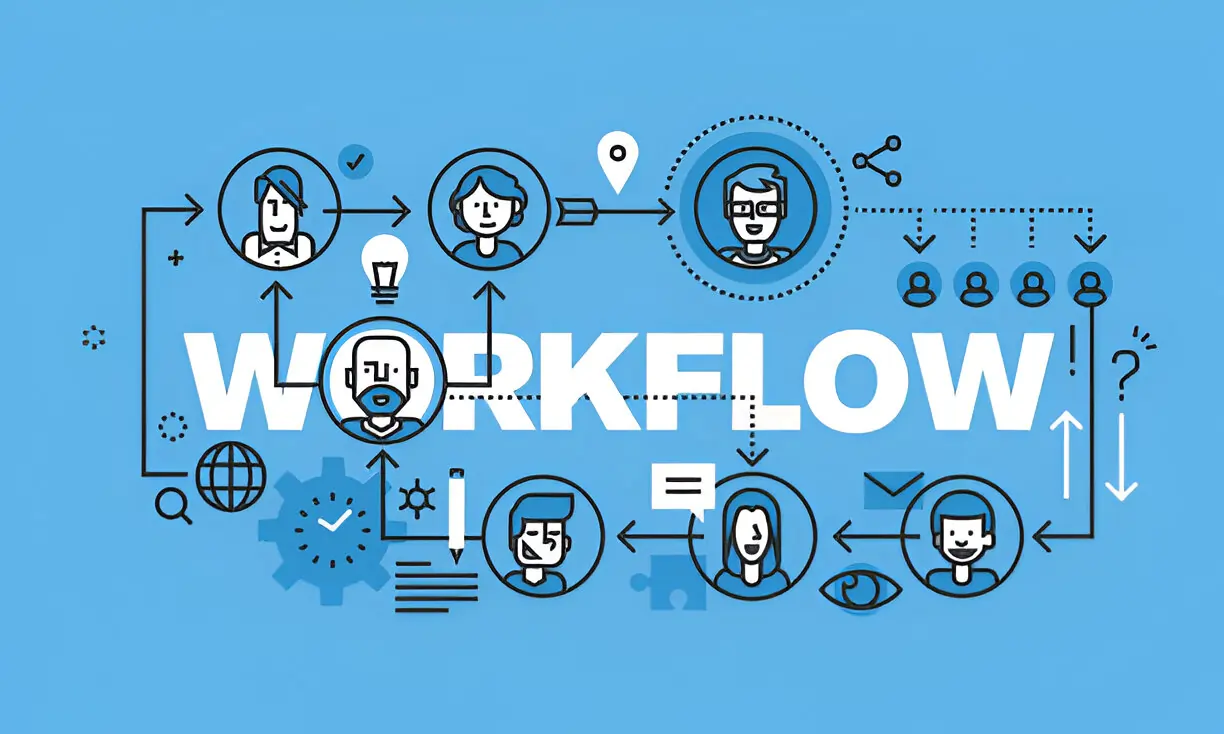Boost Your Business Workflow: How NetSuite Staffing Works
Businesses nowadays are constantly searching for ways to optimize their workflows, reduce inefficiencies, and scale sustainably. One powerful solution that has gained significant traction is NetSuite, a leading cloud-based Enterprise Resource Planning (ERP) system. Yet, while implementing NetSuite is a major step toward automation and operational efficiency, the real challenge often lies in managing and maintaining it effectively. That’s where understanding how NetSuite staffing works becomes crucial.
This article explores how NetSuite staffing functions, why it matters, and how the right staffing model can help you unlock the full potential of your business workflows.
Understanding Business Workflow Challenges
Every organization, regardless of size, faces bottlenecks in its workflows. Manual processes, siloed systems, and outdated tools often lead to inefficiencies such as:
- Data duplication across multiple platforms.
- Delays in reporting and decision-making due to limited visibility.
- Poor resource allocation, leading to wasted time and higher costs.
- Difficulty scaling, as manual systems break down with business growth.
Implementing NetSuite can solve many of these issues, but only if the system is properly configured, maintained, and supported by the right talent. This is where staffing becomes a game-changer.
What is NetSuite Staffing?
NetSuite staffing refers to the process of hiring, outsourcing, or contracting professionals who specialize in NetSuite’s ERP platform to handle tasks such as:
- System implementation and customization
- Ongoing support and administration
- Data migration and integration
- Workflow automation and optimization
- Training and end-user support
Essentially, NetSuite staffing ensures that you have the right people with the right skills to maximize the value of your NetSuite investment.
How NetSuite Staffing Works
NetSuite staffing can be structured in different ways depending on your business’s needs. Here’s a breakdown of the most common models and how they work:
1. In-House NetSuite Team
Some businesses prefer to build their own internal team of NetSuite administrators, developers, and consultants.
- How it works:
- The company recruits NetSuite-certified professionals.
- The team manages everything from daily operations to long-term projects.
- They work closely with other departments to ensure smooth workflows.
- The company recruits NetSuite-certified professionals.
- Best for: Large enterprises with complex ERP needs and a long-term commitment to NetSuite.
- Advantages: Direct control, immediate access to staff, and alignment with company culture.
- Challenges: Higher hiring costs, ongoing training requirements, and difficulty finding certified experts.
2. Outsourced NetSuite Staffing (Managed Services)
Outsourcing involves hiring a third-party provider to handle all or part of your NetSuite needs.
- How it works:
- You partner with a NetSuite consulting or staffing firm.
- They supply experts to manage implementation, customization, or daily support.
- You pay for the services as a subscription or retainer.
- You partner with a NetSuite consulting or staffing firm.
- Best for: Small to mid-sized businesses that don’t want the overhead of building a full-time team.
- Advantages: Cost-effective, access to a wide pool of expertise, and flexibility to scale services as needed.
- Challenges: Less direct control and potential reliance on external vendors.
3. Hybrid NetSuite Staffing
Many companies choose a hybrid model, combining in-house staff with outsourced professionals.
- How it works:
- Your internal team handles daily operations.
- External consultants provide support during large projects, upgrades, or technical challenges.
- Your internal team handles daily operations.
- Best for: Companies that want a balance of control and flexibility.
- Advantages: Reduced costs, expert support when needed, and efficient knowledge transfer between in-house and outsourced teams.
- Challenges: Requires clear communication and coordination between internal and external staff.
4. Contract and Freelance NetSuite Experts
Some businesses opt for short-term or project-based NetSuite staffing.
- How it works:
- Hire freelance consultants or developers for specific tasks such as workflow automation or system upgrades.
- Contracts can be short-term or extended depending on project needs.
- Hire freelance consultants or developers for specific tasks such as workflow automation or system upgrades.
- Best for: Businesses with temporary requirements or budget constraints.
- Advantages: Flexible, affordable, and focused expertise.
- Challenges: Limited availability, risk of inconsistency, and potential gaps in long-term system support.
Why NetSuite Staffing Matters for Workflow Optimization
Having the right NetSuite staffing in place is critical because it directly impacts your workflows. Here’s how:
- Streamlined Processes
With skilled NetSuite professionals, your business processes—such as invoicing, procurement, and inventory management—can be automated and integrated seamlessly, saving hours of manual work. - Data Accuracy and Reporting
NetSuite experts ensure proper data migration, system configuration, and reporting dashboards, giving leaders real-time insights for better decision-making. - Customization to Fit Your Business
No two businesses are the same. NetSuite professionals customize workflows, dashboards, and reports to align with your unique operations. - Reduced Downtime
With dedicated staffing, issues are resolved quickly, minimizing disruptions to business operations. - Scalability
As your company grows, NetSuite professionals can adapt the system to handle increased data, users, and workflows without breaking efficiency.
Key Roles in NetSuite Staffing
To better understand how NetSuite staffing works, it helps to know the roles involved:
- NetSuite Administrator – Manages day-to-day system operations, user accounts, and permissions.
- NetSuite Developer – Customizes workflows, scripts, and integrations.
- NetSuite Consultant – Provides strategic advice and ensures the system aligns with business goals.
- Data Analyst – Builds reports, dashboards, and ensures accurate KPIs.
- Project Manager – Oversees implementations, upgrades, and large-scale projects.
- Trainer/Support Specialist – Ensures staff adoption and provides ongoing support.
Each role contributes to creating a smoother, more efficient workflow across your business.
How to Choose the Right NetSuite Staffing Model
When deciding on the best approach to staffing, consider:
- Business size and complexity – Larger companies often need in-house staff, while smaller ones benefit from outsourcing.
- Budget – Outsourced models may reduce costs compared to full-time hires.
- Project scope – Big implementations or upgrades may require contract specialists.
- Long-term goals – Consider whether you need ongoing support or temporary expertise.
A hybrid model is often the most effective, giving you both dedicated staff and access to specialized expertise when needed.
The Future of NetSuite Staffing
As businesses become more digital, NetSuite staffing will continue to evolve. Trends include:
- Remote staffing – Accessing global talent for cost-effective support.
- AI-driven automation – NetSuite experts increasingly focus on advanced AI tools to optimize workflows.
- On-demand consulting – Companies hiring specialists only when needed.
- Cross-functional teams – Staff skilled in both NetSuite and other platforms for broader integration.
By staying ahead of these trends, businesses can ensure they remain efficient and competitive.
Conclusion
Boosting your business workflow isn’t just about adopting powerful software—it’s about ensuring the right people are in place to manage it effectively. By understanding how NetSuite staffing works, you can choose the right model, hire the right talent, and even integrate solutions like digital business card printing to unlock the full potential of your ERP system.
Whether you opt for an in-house team, outsourced services, or a hybrid approach, the goal remains the same: streamline operations, enhance visibility, and enable smarter decision-making. With the right NetSuite staffing strategy, your business workflows can transform from being a source of frustration into a driver of growth and innovation.
Read more: How to Rapidly Obtain and Evaluate Auto Shipping Quotations – Answer The Folks
Why Every Business Needs Support to Enhance Its Products and Services
Perfect Happy Hump Day Responses: Funny, Helpful, & Actually Unique

